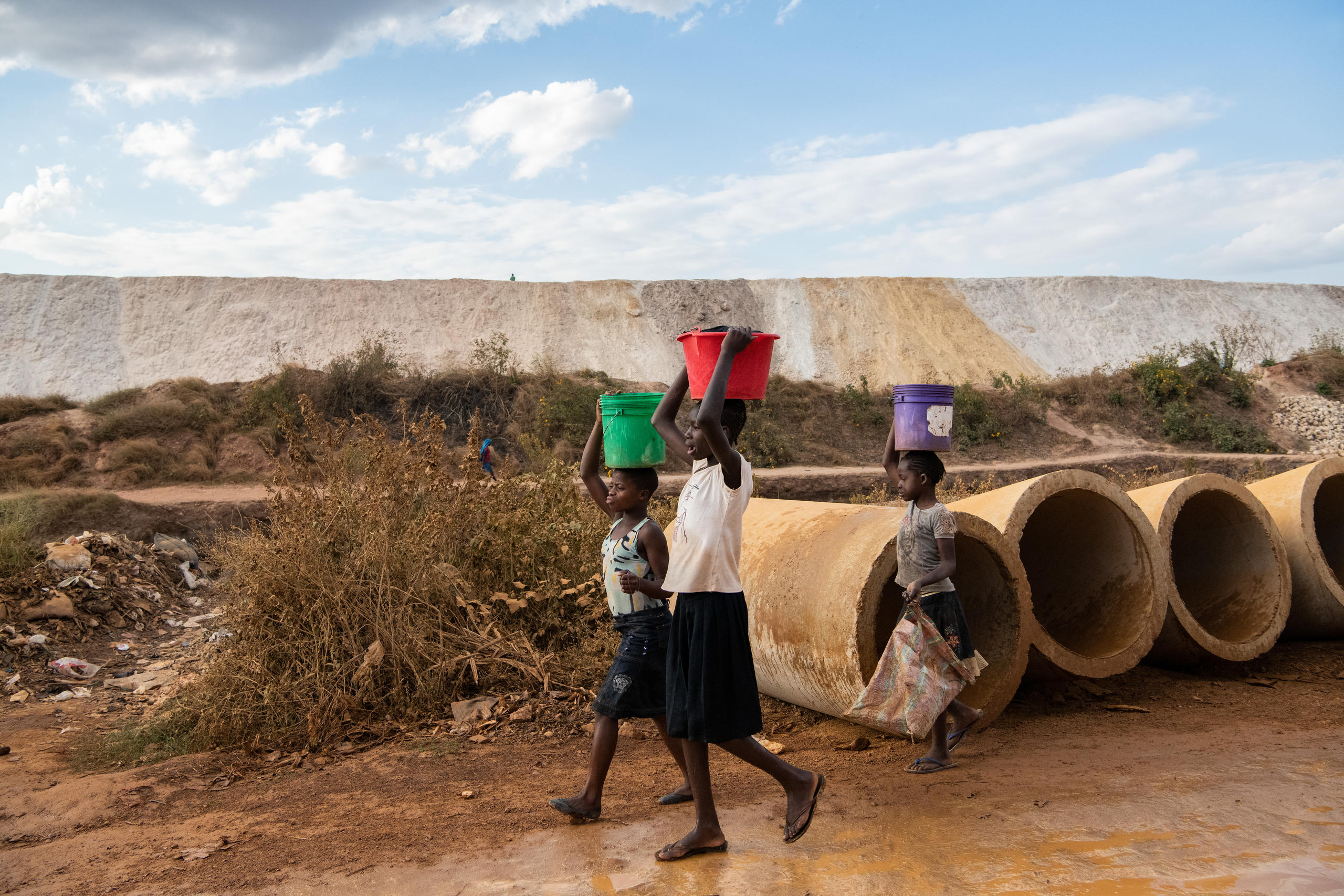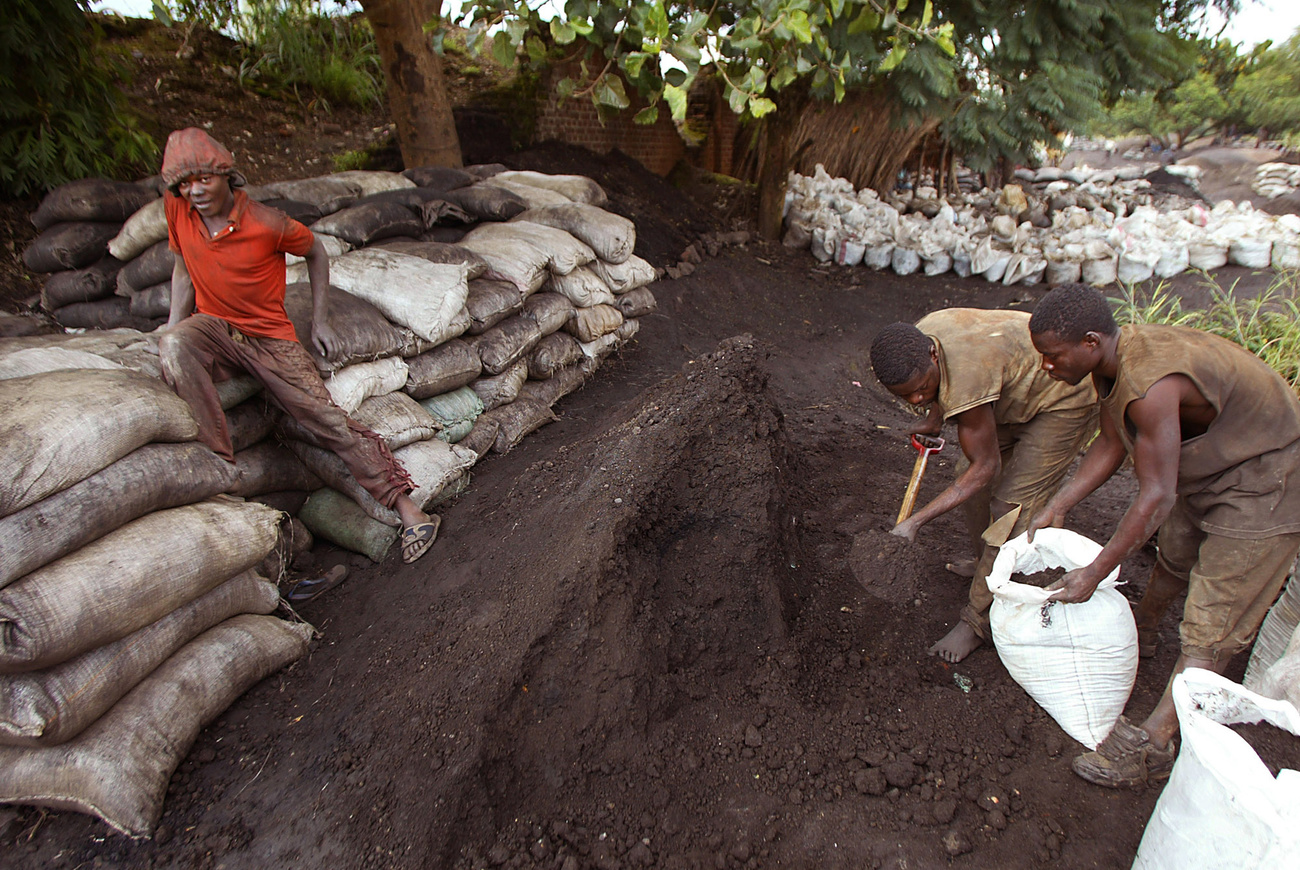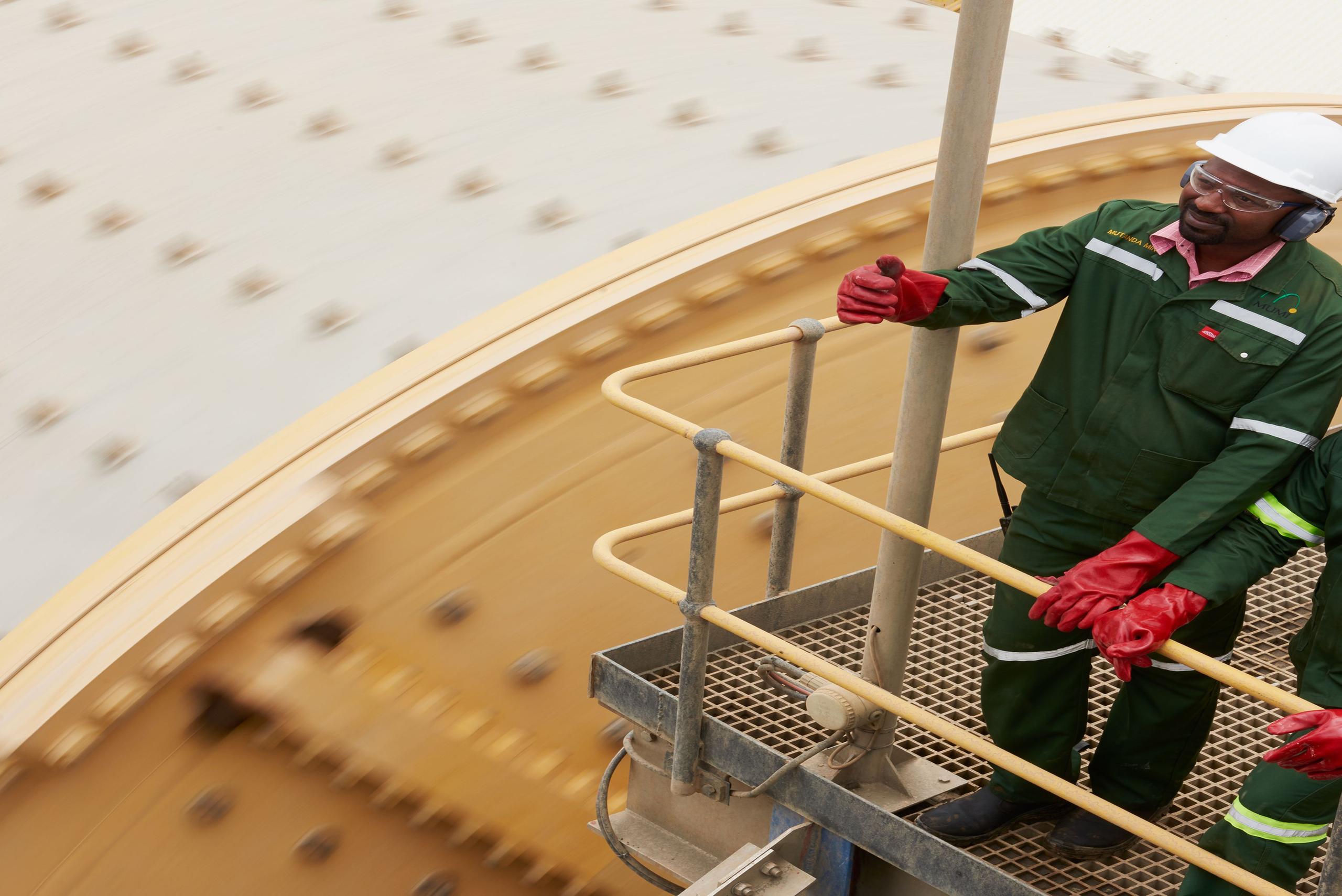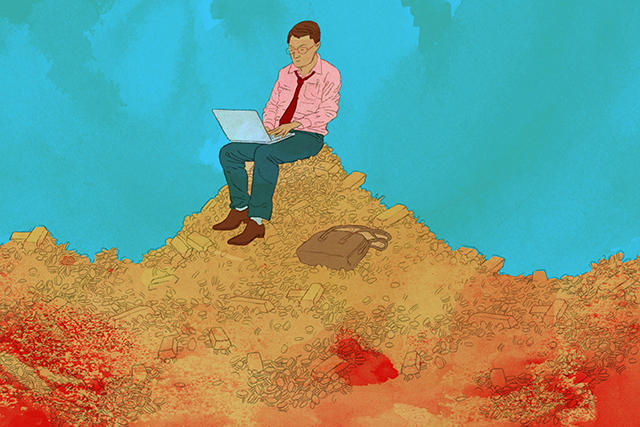Cobalt can be sourced responsibly, and it’s time to act
Business and human rights professor Dorothée Baumann-Pauly calls for human rights to be at the centre of a “green recovery” from the coronavirus pandemic and argues the cobalt mining industry is ripe for change.
Electric vehicle sales are booming. With many European governments subsidising electric vehicle purchases and more calls for a “green recovery” or to “build back better” after Covid-19, this trend is likely to accelerate.
Yet, what is good for the planet currently comes at a high human cost.
An electric vehicle’s battery typically contains around eight kilograms of cobalt – a mineral predominantly mined in the Democratic Republic of the Congo (DRC). Between 15 and 30% of the world’s cobalt originates from small, so-called artisanal mines in the DRC, where miners dig 100-metre-deep tunnels to extract the precious metal with basic tools. Fatal accidents and child labour are common, yet these artisanal mines constitute a lifeline for millions of Congolese who have no other source of income.
Faced with these human rights risks, car manufacturers like BMW and Volkswagen, along with industrial mining companies and commodity traders such as Swiss firm Glencore, are trying to avoid either artisanally mined cobalt from the DRC or Congolese cobalt altogether. But rejecting Congolese artisanal mines is not a solution.

More
How Swiss cobalt traders are trying to prevent child labour
The reality is that for companies that need cobalt there is no viable alternative to the DRC, which produces more than two thirds of the world’s cobalt and owns half of the world’s cobalt reserves. If the electric car industry continues growing, alternative sourcing locations like Australia and Morocco, won’t be able to meet global demand. Together, they produce only 5% of the world’s cobalt.
Most companies state that they only buy directly from industrial mining sites that utilise heavy machinery. But if you buy cobalt from the DRC, you can’t avoid buying from artisanal mines.
Realities on the ground
Last year, I travelled to the DRC to conduct independent research supported by the World Economic Forum that looked at three pilot projects (Mutoshi, Kasulo and Kisote) that aim to formalise artisanal mining of cobalt and ensure a responsible cobalt supply chain.
My own observations confirm what others such as the Organisation for Economic Cooperation and Development have found: artisanal mining is a business reality in the DRC, interwoven with industrial mining. Artisanal miners regularly dig on industrial mining concessions and sell to buyers that mix the material before sending it off to China, where around 90% of cobalt is processed.
Blockchain projects to trace cobalt’s origins are underway, but the realities in the DRC make proper implementation difficult. Last year, a senior executive of a car manufacturer told me confidentially that despite efforts to keep their supply chain free from artisanally mined cobalt, they “would never sign in blood that it is free of artisanal mining or child labour”.
While companies like Tesla are working on alternatives to cobalt for car batteries, full adoption of such new technology is still a decade away according to experts. As a sign that DRC cobalt is here to stay for the near future, Tesla recently struck a deal with Glencore to source Congolese cobalt for its new car plants.
More than two million Congolese work in artisanal mining in the DRC, so excluding the practice altogether also has huge consequences for people’s livelihoods and the entire Congolese economy.

More
Glencore backs cobalt mining pact in Democratic Republic of Congo
A better way
There is a way to source cobalt so that our green recovery from the pandemic also builds a better supply chain, where artisanal miners are not hiding on the fringes in unsafe conditions.
In a new reportExternal link published in the World Economic Forum White Paper series, I argue that car manufacturers and other cobalt buyers need to commit to a common standard for responsible cobalt sourcing that includes three elements.
First, companies that need cobalt must acknowledge that the future of cobalt is in the DRC and that comes with risks and responsibilities. If you want to do business in the DRC, human rights must be a top priority in the company.
Companies also need to help formalise artisanal mining activities to make mining practices safe and fair. This requires steps such as establishing monitoring to ensure children and other vulnerable groups don’t access mines; and introducing safety measures such as limiting pit depth, preparing open pits and providing protective equipment.
Some companies, for example the Swiss-based commodity trading firm Trafigura, have already piloted cobalt formalisation projectsExternal link that offer some insight into how to do this.

More
Glencore named in Congo child labour case targeting Big Tech
The third key element is for companies to not just focus on change at one mine here or there but rather for the entire industry and the cobalt supply chain. This is currently underway in the context of the Cobalt Action Partnership, an initiative of the Global Battery AllianceExternal link. The initiative includes over 50 stakeholders across the entire battery supply chain.
To build back better, we need a cobalt supply chain that prioritises human rights with standards backed by the entire industry.
Professor Dorothée Baumann-Pauly, Director of the Geneva Center for Business and Human Rights at Geneva University’s School for Economics and Management and Research Director at the NYU Stern Center for Business and Human Rights.
The views expressed in this article are solely those of the author, and do not necessarily reflect the views of swissinfo.ch.

In compliance with the JTI standards
More: SWI swissinfo.ch certified by the Journalism Trust Initiative











